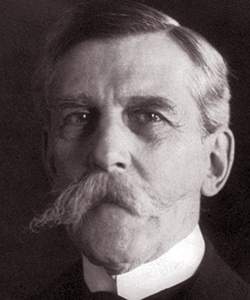Oliver Wendell Holmes, Civil War (American National Biography)
Scholarship
After the outbreak of the Civil War in the spring of 1861, Holmes enlisted in the Massachusetts militia, eventually obtaining a commission as a lieutenant. He served for two years in the Twentieth Massachusetts Volunteer Infantry and fought at Ball's Bluff, the Peninsula campaign, and Antietam. In those first two years he was promoted to captain, was wounded three times, twice nearly fatally, and suffered from dysentery. Exhausted, he completed the third and final year of his enlistment, in the winter of 1863-1864, as aide to General Horatio G. Wright and then to General John Sedgwick of the Sixth Corps. In the relative leisure of winter quarters, Holmes turned to philosophical writing, developing from his combat experience a purely materialist evolutionism. History was shaped by the perpetual conflict of rival nations and races, he believed. Laws were written and governments established by the victors.
Sheldon M. Novick, "Holmes, Oliver Wendell," American National Biography Online, February 2000, http://www.anb.org/articles/11/11-00423.html.
Oliver Wendell Holmes, Supreme Court (American National Biography)
Scholarship
Holmes's literary talents were evident in his opinions, but their impact did not depend entirely on his style. He conceived of an opinion not as a printed document but as a talk delivered from the bench. He paid careful attention both to the writing and to his manner of delivery. As he wrote to a friend, his model was the English judge, a gentleman rather than a professional: "I think that to state the case shortly and the ground of decision as concisely and delicately as you can is the real way. That is the English fashion and I think it is civilized." Holmes's opinions accordingly were brief and well enough written to be read aloud, and they were written so quickly and with so little revision as to seem, like the opinions of English judges, to have been extemporized from the bench. They were conscious works of art, fundamentally dramatic, and they had an impact far out of proportion to the logical force of Holmes's arguments.
Sheldon M. Novick, "Holmes, Oliver Wendell," American National Biography Online, February 2000, http://www.anb.org/articles/11/11-00423.html.



